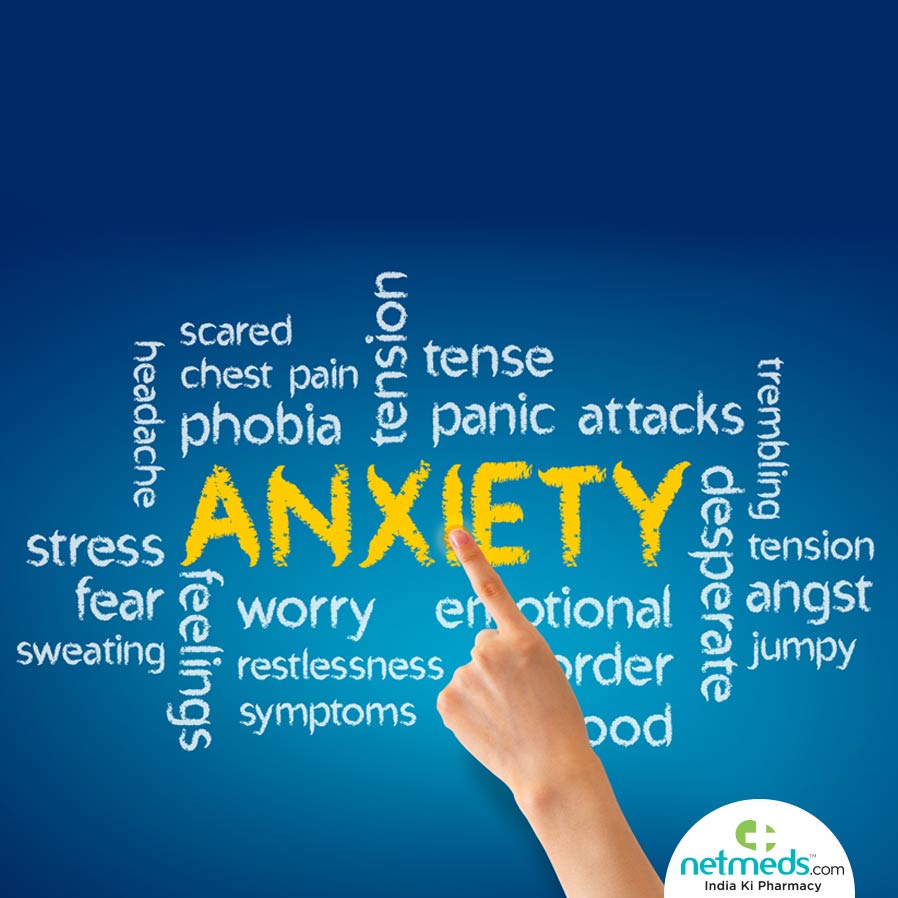Overview
Anxiety is one of the most important mental health concerns among the elderly, and it is getting more common as the world's population ages. Although anxiety disorders frequently go undiagnosed and untreated, they can have a significant negative impact on older individuals' well-being and quality of life. The intricacies of anxiety in the senior population, as well as its causes, consequences, and management techniques, will all be covered in this essay.
Recognizing Anxiety in Seniors
Anxiety disorders are a broad category of illnesses marked by excessive concern, anxiety, and unease. Anxiety in older people can seem differently than in younger people; it frequently coexists with symptoms of sadness, cognitive deterioration, and physical illnesses. Panic disorder, phobias, post-traumatic stress disorder (PTSD), and generalized anxiety disorder (GAD) are common anxiety disorders in the senior population.
Seniors who experience anxiety may do so for a variety of reasons. Anxiety can be made worse by health issues like pain, chronic illnesses, sensory impairments, and mobility restrictions. Transitions in life like retirement, losing loved ones, unstable finances, and social isolation also have a big impact. Furthermore, aging-related cognitive impairments like memory loss and diminished executive function may be a factor in elevated anxiety.
Anxiety's effects on senior citizens
Anxiety's effects on the elderly's physical health, social functioning, and general quality of life go beyond psychological anguish. Anxious older persons are more likely to experience gastrointestinal issues, cardiovascular issues, and other illnesses. Additionally, anxiety can make pre-existing medical conditions worse, which raises the need for and expense of medical care.
Anxiety can cause people to retreat from social situations, take part in fewer community events, and have strained relationships with friends and family. Anxiety symptoms in older persons can be exacerbated by feelings of loneliness and isolation, which can lead to a vicious cycle of discomfort and functional impairment.
Furthermore, cognitive impairment and decline are linked to anxiety in the aged. Prolonged worry can hasten cognitive aging and raise the chance of acquiring dementia and moderate cognitive impairment (MCI). Anxiety's cognitive symptoms, like focus issues and memory issues, might worsen an older adult's ability to function independently and on a daily basis.
Difficulties in Recognizing and Addressing Anxiety in the Elderly
Age-related anxiety can be difficult to diagnose for a variety of reasons. First of all, it might be challenging to distinguish between psychological and physical causes of anxiety because symptoms of anxiety can overlap with those of other medical diseases. Additionally, because of stigma, fear of being judged, or ignorance of mental health issues, older persons may be less inclined to report psychological symptoms.
Additionally, because they are primarily focused on physical health issues, healthcare professionals may be less sensitive to mental health difficulties in senior patients. The sensitivity of screening instruments for anxiety disorders may be inadequate to identify symptoms in older persons, resulting in an underdiagnosis and undertreatment of anxiety in this demographic.
Even when anxiety is identified, there are still obstacles to treatment, such as trouble managing medications, stigma associated with mental illness, and restricted access to mental health care. Participating in psychotherapy may provide particular challenges for older persons due to mobility restrictions, transportation problems, and cognitive impairments.
Managing Anxiety in the Elderly: Techniques and Approaches
Despite these obstacles, there are various approaches and interventions aimed at reducing anxiety in the senior citizen demographic. First and foremost, medical professionals must to be trained in identifying and evaluating mental health conditions, such as anxiety disorders, in senior citizens. Screening instruments created especially for use with senior populations can aid in the early detection of anxiety symptoms and enable the right kind of therapy referral.
Elderly people with anxiety can have better results when their physical and mental health needs are met through integrated care strategies. Incorporating mental health specialists, primary care physicians, and other healthcare professionals into collaborative care techniques helps guarantee thorough evaluation and treatment of anxiety in senior citizens.
It has been demonstrated that psychotherapy, especially cognitive-behavioral therapy (CBT), is beneficial in treating anxiety disorders in senior citizens. CBT methods including exposure treatment, cognitive restructuring, and relaxation training can help older persons better control their coping mechanisms and anxiety symptoms.
Healthcare professionals should use caution when prescribing medicine when it is necessary because older persons are more susceptible to the negative effects of psychotropic drugs. To reduce risks and maximize therapeutic results, drug management should include close observation of dosage, adverse effects, and interactions with other medications.
For the purpose of preventing and treating anxiety in the elderly, it is imperative to address social determinants of health such as social isolation, unstable housing, and financial instability in addition to professional therapies. Social engagement, peer support, and aging-in-place resources are all provided by community-based initiatives that can help reduce loneliness and improve the general well-being of older persons.
In summary
Elderly anxiety is a serious mental health issue that has a wide range of effects on social interaction, physical health, and overall quality of life. There are useful techniques and interventions available to address these problems, despite the difficulties in diagnosing and treating anxiety in older persons. We can promote the well-being of elderly adults with anxiety disorders and improve their outcomes by increasing awareness, promoting early detection, and implementing integrated care approaches. In order to promote mental health in aging populations and guarantee that older persons receive the support and care they require to thrive in their later years, legislators, healthcare professionals, and community stakeholders must collaborate.


No comments yet